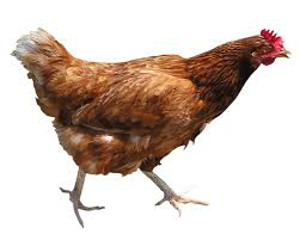 tion carried out by the Guardian, the influential UK newspaper, has uncovered a plethora of alleged hygienic failings in the UK poultry industry.
tion carried out by the Guardian, the influential UK newspaper, has uncovered a plethora of alleged hygienic failings in the UK poultry industry.Tesco, Sainsbury’s and Marks & Spencer, the supermarkets receiving the supposedly contaminated chicken, have launched emergency investigations themselves.
The issue of concern is the presence of a bacteria called campylobacter.
At the last count it was present in two-thirds of British fresh chicken sold in the UK. Although the bug is killed by thorough cooking, around 280,000 people in the UK fall ill each year because of it, and 100 of these are thought to die. Contamination rates are known to have increased in the past decade.
Allegations have been made against two of the biggest UK poultry processors, 2 Sisters Food Group and Faccenda.
The Guardian stated:
1. Chickens which fall on to the floor have repeatedly been put back on to the production line at two 2 Sisters sites. They company denies this ever happens and says all chicken from the floor is correctly disposed of as waste.
2. Breakdowns led to high-risk material – feathers, guts and offal – piling up for hours on separate occasions while production continued at a 2 Sisters factory in Wales. The company says they did not stop the line because they had to consider the welfare of chickens waiting in crates to be killed.
3. Another breakdown led to the water in scald tanks at the same site not being cleaned for three days, so that around 250,000 birds passed through dirty water after slaughter. The company says this was an isolated incident that lasted only one day, bacteria counts were checked and were acceptable.
4. According to a whistleblower chicken catcher, biosecurity rules to stop the spread of campylobacter in chicken sheds at Faccenda were regularly ignored by workers when he was employed there. Faccenda says this is not true and it has invested heavily in a highly trained and motivated workforce."
2 Sisters stated:
“The allegations about our processing sites are untrue, misleading and inaccurate. Both have British Retail Consortium ‘A’ grade Food Standards certifications, based on a number of announced and unannounced visits. In addition, we and our customers carry out audits. None of these have uncovered any concerns about our hygiene standards or food safety.
“Our Scunthorpe site has already surpassed the Food Standard Agency’s 2013 targets to reduce campylobacter levels, and continues to work towards the 2015 target. We are taking the lead in our industry. We have launched the UK’s largest ever independent study aimed at helping the poultry sector reduce campylobacter levels, which has been praised as sector-leading by the FSA.”
Faccenda commented:
“Strong biosecurity and good hygiene practices are fundamental to any well run agrifood business. We operate under the Red Tractor standard, and are always looking for ways to further improve. We are investing heavily across our business to identify ways of reducing the risk of campylobacter. In addition we have developed new innovative packaging to help food safety in the home. We have played a leading role on campylobacter and continue to liaise closely with the FSA.
“Far from being pressurised by customers, we have close trusted relationships with our partners who work with us to ensure that the public can have confidence in the food we supply. We are also subject to unannounced audits to ensure we also adhere to the highest standards.”
Marks & Spencer:
“We take food safety very seriously and regularly audit all of our suppliers to ensure that they meet our strict codes of practice. We do not tolerate any alleged breach of our standards and have launched an immediate investigation.
“We’ve provided advice for customers, launched new packaging for chicken and funded trials and projects on reducing campylobacter.”
Sainsbury’s:
“We are investigating these allegations with 2 Sisters.”
Tesco:
“Providing safe food is our first priority, so we take these allegations of poor practice extremely seriously, and have launched an immediate investigation.
“Customers can be assured that we conduct our own stringent quality checks on fresh chicken received from suppliers before it is placed on shelves, so we can be confident that it meets our very high quality and safety standards.”





